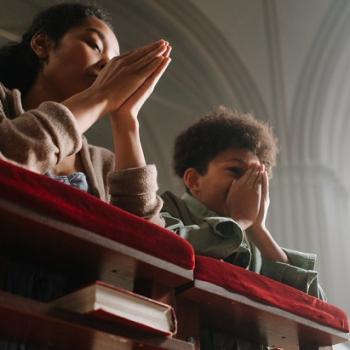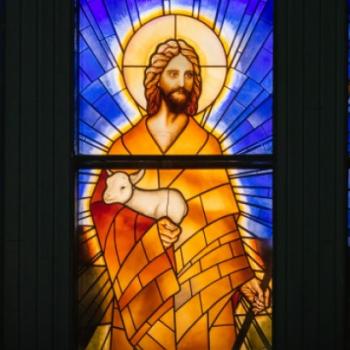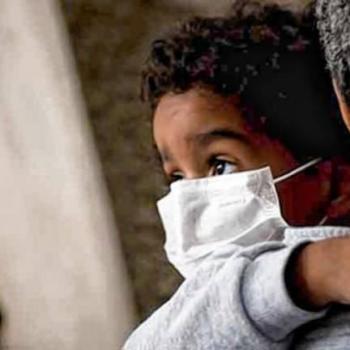by Shannen Dee Williams, PhD
On Monday, December 8, 2014, a small group of U.S. Catholic theologians from St. Louis University, Loyola University New Orleans, the University of Dayton, and Marquette University released a statement calling for police reform and racial justice in America in the wake of the ever-expanding “Black Lives Matter” movement.
Citing four racially charged police killings and referencing the Reverend Dr. Martin Luther King, Jr. and Pope Francis, the group called upon the Church to “raise [their] voices about the imperative of a just peace in [a] fragmented and violent world.”
The group also expressed a clear desire not to repeat the mistakes of the past, noting that the vast majority of Catholic theologians ignored calls to action and justice “during the 1960s Civil Rights movement.”
Now to be absolutely clear, the initial statement released to the press made no mention of black women and girls as victims, survivors, or opponents of police violence whatsoever.
After receiving a link to the statement on the morning of the 8th, I immediately emailed the members of a prominent listserv of Catholic scholars to express my grave concerns about the statement’s grievous oversight. I referenced the police killings of seven-year old Aiyana Stanley-Jones in Detroit, 22-year old Rekia Boyd in Chicago, 34-year old Miriam Carey in Washington, D.C., and countless other black women and girls who were all unarmed at the time of their deaths. I also cited the videotaped beating of Marlene Pinnock, a 51-year old great-grandmother, by former California Highway Patrol Officer Daniel Andrew, the ongoing case against Oklahoma City police officer Daniel Hotzclaw, charged with raping 13 black women and girls while on duty, and the day-to-day police harassment faced by millions of African-American women and girls in this country.
As a practicing Catholic and citizen of the world, I reminded the theologians that all black lives matter. I also warned the group that if the Church failed to acknowledge black women and girls as both victims and the loved ones of victims of police and vigilante violence in their statement, they failed the black community as a whole.
Within minutes of sending my email, I received responses from a handful of leading Catholic scholars, including one of the statement’s original drafters, welcoming my critique and expressing their full support of the inclusion of black women and girl victims of police violence in a revised statement. By 2 pm EST, a revised statement reflecting the concerns that I raised was posted on catholicmoraltheology.com. However, the original version of the statement referencing the “killings of black men” only remains posted on the website of Jesuit Social Research Institute at Loyola-New Orleans.
While I sincerely applaud the willingness of these theologians to consider my critique and, in certain instances correct their error, I remain deeply troubled by the fact that the lives and sufferings of black women and girls could be so easily overlooked by a group of “progressive” Catholic scholars in the first place—especially when they purported to be concerned with not repeating the mistakes of the past.
Not only were campaigns in defense of black womanhood at the core of many of the civil rights struggles of the 1940s, 1950s, 1960s, and 1970s, but also black women and girls represented a disproportionate number of the plaintiffs in the desegregation cases that helped to dismantle Jim Crow apartheid in the nation.
Across the world today, black women and girls remain on the front lines of protests against systemic racism and police violence, not only for black men and boys, but also for themselves. They are passionately chanting “Black Lives Matter” and “I Can’t Breathe.” They are also screaming “No More Business As Usual.”
In mid-August 1968, 155 of the nation’s approximately 1,000 black Catholic nuns collectively screamed the same thing when they formed the National Black Sisters’ Conference at Mount Mercy College* in Pittsburgh, Pennsylvania.
Organized by 25-year old Sister M. Martin de Porres (Patricia) Grey, R.S.M., the only woman present at the founding meeting of the Black Catholic Clergy Caucus (BCCC) in Detroit four months earlier, these sisters constituted a revolutionary, though largely untapped, source of power and leadership in the Church.
As members of the nation’s historically black and white Catholic sisterhoods, these women and girls had endured decades of unspeakable and unholy discrimination in the Church. Yet, they had kept the faith and striven to make the Church truly Catholic. Some had quietly desegregated, or re-integrated, several Catholic colleges and universities in the years prior to the landmark Brown decision, including St. Louis University, Loyola New Orleans, and Spring Hill College cited in Dr. King’s famed “Letter from a Birmingham Jail.” Others had courageously desegregated white orders, which had for decades explicitly barred the admission of African-American women and girls into their ranks solely on the basis of race.
Grey, in fact, had desegregated the Pittsburgh Sisters of Mercy as a teenager in 1961 and led a delegation of Mount Mercy students through downtown Pittsburgh in a Selma sympathy march in 1965. Called to greater action in the wake of Dr. King’s assassination in 1968, she traveled to Detroit to join the historic gathering of the nation’s black priests only to be barred from “officially” participating because of her sex.
Speaking on that defining moment in the early seventies, Grey painfully recalled the sexism of her male counterparts noting that she “accused them of prejudice against their own women and of allowing themselves to be so dominated by their prejudices that they were acting irresponsibly toward…black people” to no avail.
Despite such obstacles, Grey and other black sisters persevered in their fight against racism and sexism. They marched (and got arrested) for racial justice, sat in at black Catholic schools set for closure by all-white school boards, picketed discriminatory archdiocesan offices, bailed student-activists out of jail, revolutionized their school curriculums, testified publicly about the racist and sexist abuses that they were subjected to in the Church, and with the nation’s black priests, brothers, and laity took their fight all the way to the Vatican in 1971 in an attempt to plead their case to the Pope directly.
In doing so, these visionary black sisters-leaders developed their own liberation theology to confront the structures of racism and sexism in the Church and wider society. They also paid a heavy price for their inclusive vision of freedom and justice.
While some black sisters defected from their congregations in explicit political protest, many others were summarily dismissed from their vows or antagonistically driven out of their communities as punishment for their activism. Some who remained in religious life, like the indomitable Thea Bowman, F.S.P.A., Dolores Harrall, S.N.D.de.N., Mary Julian (Norma Fae) Griffin, V.S.C., and Reginalda Polk, O.P., died young fighting racism and sexism in their beloved Church.
Despite their monumental sacrifices, the lives and legacies of these powerful black women of God have been marginalized, misremembered, or altogether ignored in the Church.
As protesters of all hues, sexes, creeds, sexualities, and ages continue to raise their voices and put their bodies on the line in the name of racial justice and human dignity, we in the Catholic Church have a real obligation to truly listen and act when they say, “no more business as usual.”
The radical generation of black sisters who came of age during America’s civil rights and black power years left us a revolutionary blueprint on how to confront racism and sexism in the Church and demand meaningful change in our world.
I challenge the teaching body of the Church to finally use it.
*Mount Mercy College is now Carlow University.
 Shannen Dee Williams is an assistant professor of United States and African-American history at the University of Tennessee at Knoxville. She is currently completing the manuscript for a book entitled, Subversive Habits: Black Nuns and the Struggle to Desegregate Catholic America after World War I. When published, it will be the first historical monograph on black Catholic sisters in the twentieth-century United States.
Shannen Dee Williams is an assistant professor of United States and African-American history at the University of Tennessee at Knoxville. She is currently completing the manuscript for a book entitled, Subversive Habits: Black Nuns and the Struggle to Desegregate Catholic America after World War I. When published, it will be the first historical monograph on black Catholic sisters in the twentieth-century United States.
Dr. Williams is a cradle Catholic and winner of the 2010 John Tracy Ellis Dissertation Award from the American Catholic Historical Association and the 2011 Charlotte W. Newcombe Fellowship for Religion and Ethics from the Woodrow Wilson National Foundation.












